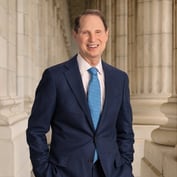What You Need to Know
- Seven in 10 men and nearly half of women said the husband takes responsibility for long-term financial decisions, according to a UBS survey.
- Wealthy millennial women defer financial decision-making to their spouses more than any other age group.
- Seven in 10 couples said collaborating on financial decisions would foster a better sense of financial security.
Seven in 10 men and nearly half of women in a new survey from UBS report that the husband takes responsibility for long-term financial decisions, such as investing and financial and estate planning.
Virtually all couples surveyed agreed that women should be involved in long-term finances, and the vast majority said that unless they are so involved, gender equality will never come to pass. Yet only 20% of women and men said they make decisions together.
UBS found that 82% of women defer to their spouse because they believe they lack the knowledge to participate in financial decisions, and 95% of men agreed this is so. Couples also largely agreed that women have little interest or time to take part, as they largely shoulder the burden of household responsibilities.
Furthermore, 7 in 10 men said they do not trust their spouse to make good choices and, in the event of divorce, believe they are in a better position to protect their assets if they are the lead decision-maker.
About half of women said they feel as if the couple’s assets belong to the husband.
“It’s hard to believe that in 2021 only 20% of couples are equal partners in investing,” Paula Polito, divisional vice chairwoman at UBS Global Wealth Management, said in a statement. “Old gender norms and stereotypes still hold too many women back.”
UBS surveyed 493 women and 1,008 men from Jan. 26 to Feb. 1. Those between 25 and 30 had at least $250,000 in investable assets, those 31 to 39 had at least $500,000 and those 40 and older had at least $1 million in investable assets.
Millennial Enigma
UBS reported a surprising finding in its survey of millennials, given the generation’s focus on equality. Wealthy millennial women defer financial decision-making to their spouses, more so than any other age group.









 May 10, 2021 at 10:08 PM
May 10, 2021 at 10:08 PM











